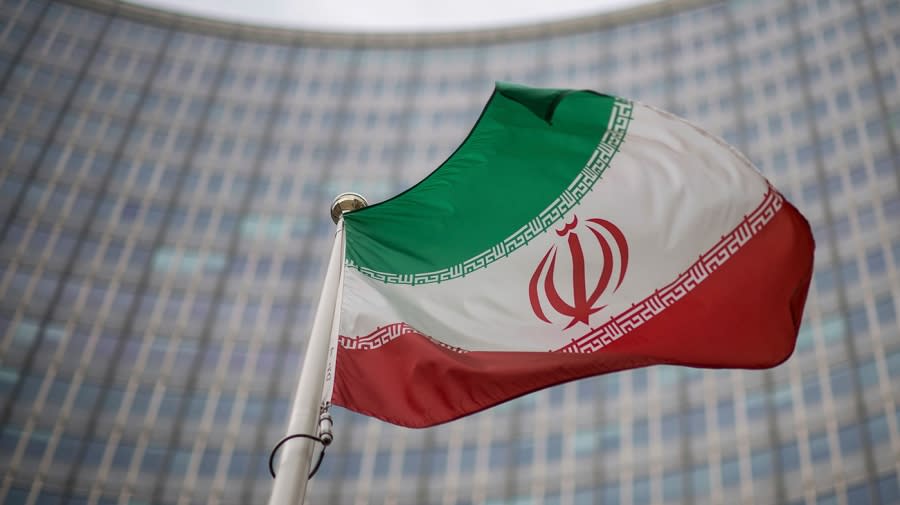“I don’t think the [Ukraine] war makes it more difficult, [it] makes it more necessary,” EU’s top diplomat said about the importance of the JCPOA.
Qatar has been selected as the host country for indirect Iran and the United Stated talks to revive the 2015 nuclear deal, also known as the Joint Comprehensive Plan of Action (JCPOA).
The talks will be facilitated by the European Union as the bloc’s top diplomat Joseph Borrell looks to break the month-long stalemate in the negotiations, according to Mohammed Marandi, an adviser to the Iranian delegation for the nuclear deal
On Sunday, Marandi, noted the potential transfer of negotiations to Qatar and said Iran has “chosen” the Gulf nation as a place for negotiations because “it is a friendly country,” as reported by Al Araby Al Jadeed.
However, he said the resumption of nuclear negotiations does not guarantee the approach of attaining a conclusion.
“The agreement has become hostage to the will of the Americans,” Marandi added, stressing that the conclusion of the agreement depends on the lifting of sanctions and the provision of guarantees to Tehran in an “acceptable manner.”
Analysts say the decision to choose Doha comes as no surprise “mindful of the extremely valuable role Qatar has played in mediating between the United States and Iran,” Dr. Trita Parsi, Executive Vice President of the US think tank Quincy Institute told Doha News.
Doha has played a crucial role in mediating to resolve issues among various parties in recent years, including those in Afghanistan and Chad. However, officials over the past few months have repeated that Qatar has had no official role in the nuclear talks.
Monday’s decision puts Doha directly onto the mediating table.
“Qatar has already built a solid track record of neutrality and trust, brokering peace agreements, conducting humanitarian missions and excelling at communication and dialogue with conflicted parties- in a demonstration of strategic diplomacy,” Zaid Al Hamdan, Chairman of political consultancy group Armasite Group told Doha News.
Iran’s Foreign Minister Hossein Amir-Abdollahian called on Washington to look “realistically” at the negotiations in order to “reach an agreement,” stressing that his side is ready to resume talks in the coming days.
Qatar’s Foreign Minister Sheikh Mohammed bin Abdulrahman Al Thani reiterated Doha firm stance in liaising a constructive dialogue between Iran and the United States through its respective communication channels back in March.
The top diplomat said Iran’s foreign affairs “certainly” affects Qatar and the Gulf Cooperation Council countries as it is a neighbouring nation.
Talks with world powers to restore the nuclear deal has been in deadlock since March.
A draft was initially written up before the standstill but was not yet finalised, with delays being blamed on Russia’s demand for guarantees that its trade relations with Iran would not be affected by the newly-imposed US sanctions on Moscow.
A source quoted Borrell as saying: “at a certain moment, Russia was very much against the deal because certainly Iran will come to the oil market and provide an alternative source of oil. But after the contacts the Iranians themselves had with the Russians, Russia has withdrawn any objection to the deal.”
It was also further delayed due to a lack of middle ground between Tehran and Washington regarding a compromise on the former’s request to delist its paramilitary arm. The Islamic Revolutionary Guards (IRGC) was designated in the infamous US State Department Foreign Terrorist Organisations as a terror entity in April 2019, under the former Trump administration.
“A revival of the nuclear deal will be an important step towards middle eastern stability, and stabilising energy prices-a win that this US administration desperately needs,” Al Hamdan added.
The Nuclear Deal
Washington unilaterally abandoned the JCPOA in May 2018 under the Trump administration’s “maximum pressure” campaign on Tehran. In addition, the US reimposed sanctions on the Islamic Republic.
Indirect talks between Iran and the United States initially began in April 2021 in Vienna with the participation of the p4+1, namely the United Kingdom, France, China, Russia plus Germany.
Progress was evident during the first round, as Tehran and Washington both agreed to form two working groups.
One such group was dedicated to the lifting of crippling US sanctions on the Islamic Republic, while the other focused on Tehran’s nuclear facilities. The talks later stalled, with even more sanctions imposed on the already-affected country.
Tehran also enriched its uranium production at 60% as a response to a series of attacks on its nuclear sites, including its Natanz facility. Iran pointed the blame at Israel, citing the Zionist regime’s objection to the revival of the nuclear deal.
Israel’s claims over Iran’s development of a nuclear weapon have long been used as means to justify its hostility towards the country, as well as its persistence of its occupation of Palestine.
Tel Aviv itself is in possession of nuclear weapons though it is not a signatory of the Treaty on the Non-Proliferation of Nuclear Weapons – the centrepiece of global efforts to inhibit the spread of the world’s deadliest weapon.
The International Atomic Energy Agency (IAEA) in early June adopted a resolution criticising Tehran for its refusal of providing “answers about uranium traces at three undeclared sites,” reports said.
The 35-member IAEA Board of Governors passed the resolution brought by the US, UK, Germany and France with 30 votes in favour.
The resolution calls on Iran to “act on an urgent basis to fulfil its legal obligations and take up immediately the IAEA director general’s offer of further engagement to clarify and resolve all outstanding safeguards issues.”
Tehran has already warned against the “anti-Iran resolution” and vowed a “proportionate” response.
Tehran has always maintained its argument that its uranium enrichment is to manufacture radiopharmaceuticals for use in the country’s medicinal sector, slamming alleged arguments of its development of a nuclear weapon.







